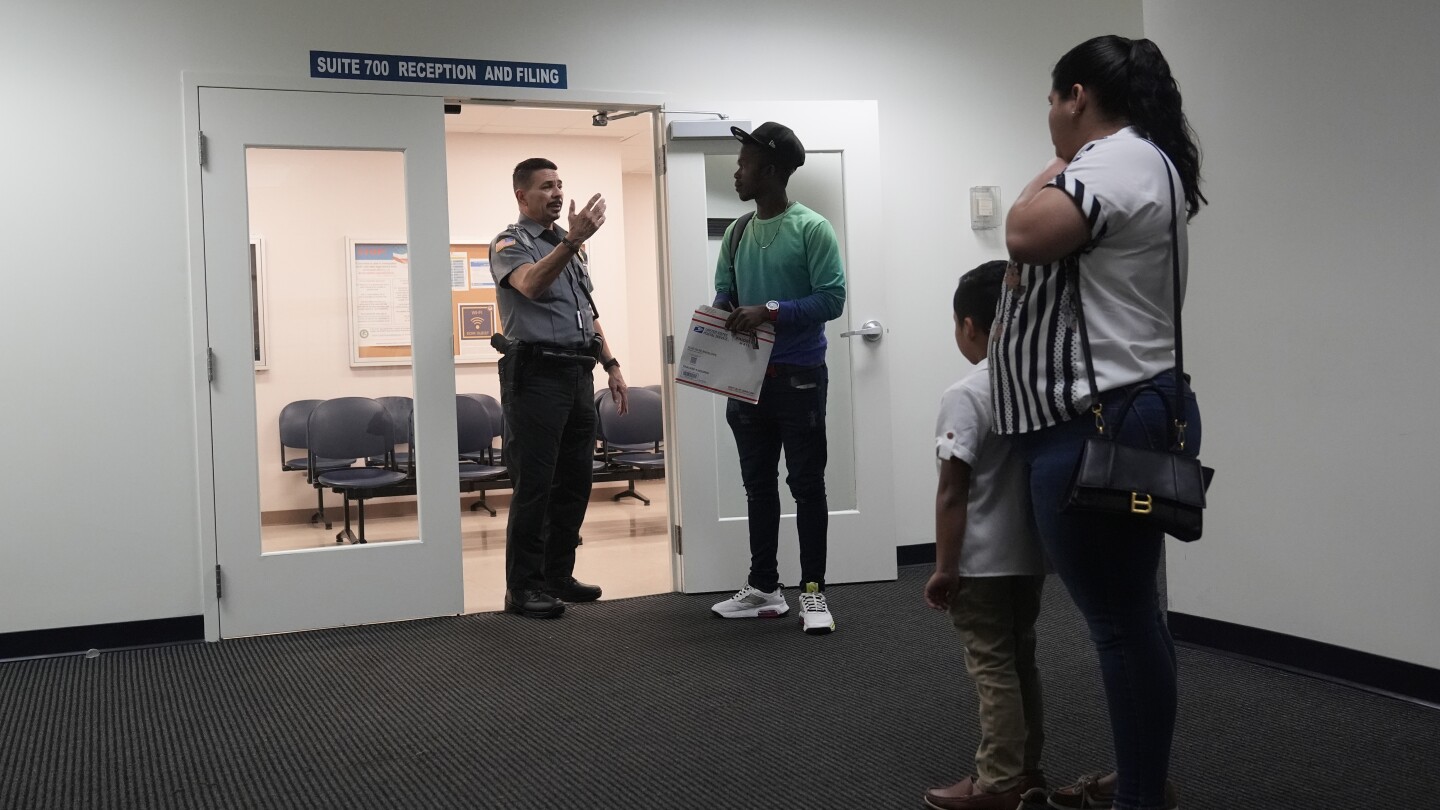…
Fueled by record-breaking increases in migrants who seek asylum after being apprehended for crossing the border illegally, the court backlog has grown by more than 1 million over the last fiscal year and it’s now triple what it was in 2019, according to government data compiled by Syracuse University’s Transactional Records Access Clearinghouse.
Judges, attorneys and migrant advocates worry that’s rendering an already strained system unworkable, as it often takes several years to grant asylum-seekers a new stable life and to deport those with no right to remain in the country.
…
When migrants are apprehended by U.S. authorities at the border, many are released with a record of their detention and instructions to appear in court in the city where they are headed. That information is passed on from the Department of Homeland Security to the Justice Department, whose Executive Office for Immigration Review runs the courts, so that an initial hearing can be scheduled.
“They’re just being released without any idea of what comes next,” said Randy McGrorty, executive director of Catholic Legal Services for the Archdiocese of Miami, which has seen hundreds of thousands of migrants join its diaspora communities.
So many migrants go to them for advice that, in the last couple of years, they’ve largely switched to teaching how to self-petition and represent themselves before judges.



Do you have a source for any of that? Historically, the Latin Church has leaned liberal.
The religious = irrationally conservative dynamic is a pretty broad stereotype.
It heavily depends on which community you’re talking about, basically it runs the same gambit as churches in the US except all bearing the label of Catholic